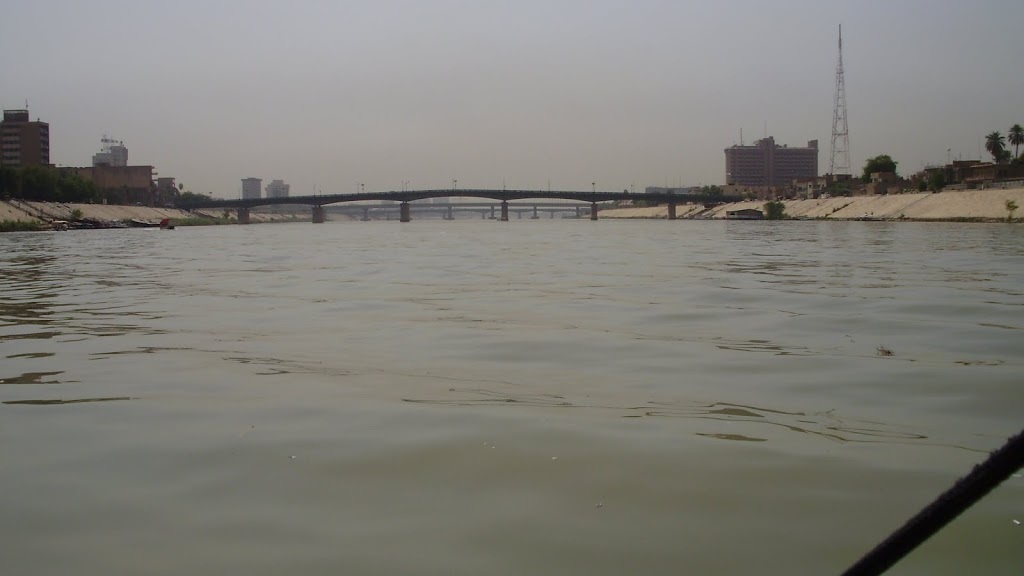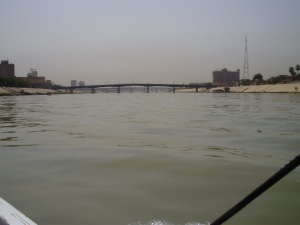Iraq falling apart
Iraq is unravelling nearly 11 years after the US-led invasion, with this year being the country’s most violent since the Sunni-Shia bloodbath of 2006-07, writes Salah Nasrawi
Not very important — at least not from the point of view of the Iraqi Ministry of Interior spokesman or the local and Baghdad-based international media.A Sunni family of five was killed in their home in a Baghdad neighbourhood on 27 November. Days later, the only account of this horrible story to appear was that the five family members, including two boys and a girl, had been killed by gunshots in their house in a Shia-majority neighbourhood of Baghdad.
The trouble was not that the spokesman was uncaring or that the reporters didn’t have enough information for a solid story, but that because Iraq’s story of daily killings has become so routine, if not boring, it is now failing to make front-page headlines.The world’s mainstream newspapers and TV networks have allowed the news of the costly conflict to slip off their radar screens because their editors perceive that Iraq-related stories cannot now get a prominent position without some local link.
Yet, Iraqis continue to bleed in the unrelenting violence. The same day that the family was gunned down, police found more than a dozen bodies around Baghdad and in Basra of people who had been killed in execution-style killings.A wave of bombings and shootings then hit markets, schools and mosques in several other towns, and by midday a total of 33 people had been killed and 76 wounded.
This year has been Iraq’s most violent since the Sunni-Shia bloodbath of 2006-2007, only now with a resurgence of sectarian killings as well as a growing insurgency campaign of bomb and gun attacks targeting security forces and civilians.
The United Nations has estimated that just under 9,000 civilians and members of the Iraqi security forces have been killed, with thousands more injured.
Iraq is suffering from its worst surge in violence since the US-led invasion in 2003 that toppled the Sunni-led regime of former president Saddam Hussein, with Sunni insurgents this year stepping up their bombing campaigns against the Shia-controlled security forces and mostly Shia civilians.
Violence has also developed its own momentum, with inter-community disputes sometimes bursting into bloodbaths. Scenes of the corpses of what it seems may be tit-for-tat kidnappings and assassinations littering the streets are now common.
The violence in Iraq has escalated steadily since the last US troops pulled out of the country in December 2011. It has been fuelled by many complicating factors, in particular sectarian Shia-Sunni tensions and the continuous political deadlock over sharing wealth and power.
Tensions spilled out onto the streets in December, when tens of thousands of Sunni Arabs started a protest across the country’s Sunni provinces demanding an end to what they see as a Shia monopoly of power and the marginalisation and exclusion of their sect.
As the Sunni protests, seen by Shias as an attempt to regain the Sunnis’ former supremacy, have escalated, the struggle within the Muslim community has become more and more vicious.
A peace plan put forward in September by the Shia alliance to resolve some of the Sunni grievances in exchange for halting the insurgency has crumbled.
The initiative suggested measures to include Sunnis in the government, army and security forces, but it fell short of being a fully-fledged agreement on the fair distribution of wealth and power and demographic realities.
The violence is also taking place within the context of a civil war in neighbouring Syria that has been worsening sectarian tensions and highlighting security shortcomings.
One of its worst consequences is that Al-Qaeda in Iraq, which has banded together with extremists in Syria in the Islamic State of Iraq and Syria, has now extended its influence from northern Syria to towns in the area that forms a Sunni demographic belt around Baghdad.
From there, terrorists can now infiltrate into Baghdad itself to carry out attacks in mostly Shia-populated neighbourhoods. In recent months, the group has also widened its geographical scope, creating devastation in the north and south of the country which have historically seen less violence than other regions.
In September, Al-Qaeda attacked the Kurdish Regional Government’s Interior Ministry building in Erbil, killing six security guards and wounding more than 60 people. Some Al-Qaeda-type attacks have also been taking place in Sunni-dominated areas.
The spiralling rise in the violence indicates the failure of government efforts to combat Al-Qaeda. Nearly two years after the US withdrew its last troops from Iraq, government security forces remain incompetent, untrustworthy, corrupt, and sectarian-oriented, and they have been largely blamed for failing to stop the bloodshed.
In recent weeks, the Baghdad government has launched a security sweep in Sunni-dominated provinces and neighbourhoods of the country in order to try to round up suspected militants.
Hundreds of suspects have been arrested in the crackdown, which the government says will continue until Al-Qaeda in Iraq has been defeated.
Behind the scenes, however, the government is also building new Shia-only security forces that are being trained in counter-insurgency and guerrilla warfare. Reports suggest that Shia militias have been remobilised and that they are working in secret with the security forces.
Iraq’s cycle of violence seems to be becoming unbreakable and even more vicious. Many Iraqis blame the government and the political groups for not doing enough to prevent the bloodletting. Others accuse the country’s greedy and corrupt political parties of fuelling the hatred or even of encouraging or engaging in violence themselves as a way to make up for lost power or to divert attention from their failure to resolve the country’s problems.
In addition, Iraq’s neighbours, especially Iran, Saudi Arabia and Turkey, have been responsible for some of the violence, either by siding with the feuding communities or by paying too little attention to efforts to bring peace to the beleaguered country.
While the regional power struggle has enhanced local tensions, the region’s ever-deepening Shia-Sunni divide has also been fuelling broader antagonisms and violence inside Iraq.
Unfortunately, this sectarian schism is expected to grow further after the nuclear deal that Iran reached with the West last month, which many believe has the potential of turning Iraq into a playground for regional powers.
For now, and until the grievances and fears that are feeding the violence in Iraq are addressed, security in the country and the overall region will remain uncertain.
The violence in Iraq, after having been institutionalised, is increasingly turning into a norm of life. Violence at the levels of the individual, the family, the clan, the district and the town is increasingly becoming a critical source of social chaos and political instability.
In recent weeks, cases of assassinations by silencer-mounted guns and the bullet-riddled bodies of people killed in execution-style killings found on the streets have risen.
Unidentified gunmen routinely storm into houses and kill whole families including children before they leave. Residents in the very few remaining mixed towns and neighbourhoods have been leaving their houses after receiving death threats.
Such surges in arbitrary violence have been complicating matters further and driving Iraqis to lose all hope of regaining stability.
Sadly, all this makes the prospect of next year for the Iraqis even dimmer. It is an election year, and Iraqis know that their power-greedy leaders will most probably not only resort to murky means to achieve power, but will also attempt to incite sectarianism and bigotry.
Nothing is more likely to succeed in this than further bloodletting.





